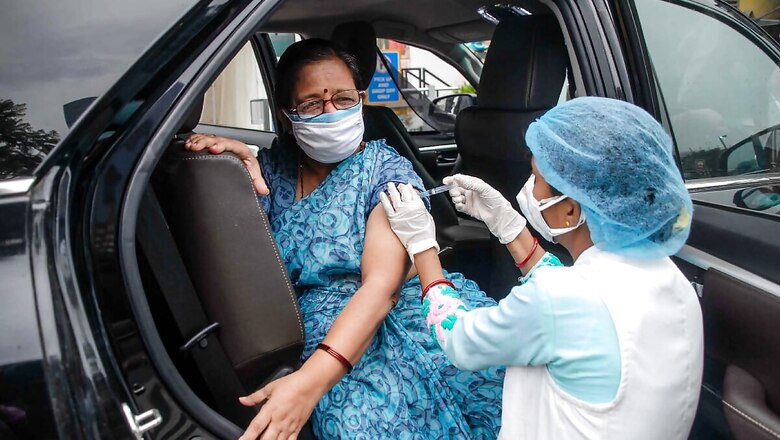
views
Amid reports that the Indian government may grant indemnity to Pfizer and Moderna to hasten the vaccination process in India, the Serum Institute of India on Thursday also asked for indemnity from liability, saying all vaccine makers, whether Indian or foreign, should be granted the same protection. The government has so far not given any manufacturer indemnity or protection against legal action for any severe side effects. As the issue gains traction, here’s what indemnity means and how it will aid the vaccination process in India.
Q.What is indemnity?
Indemnity means protection to vaccine makers from legal proceedings, which ensures they can’t be sued in India. No other vaccine maker in India enjoys this clause. However, Pfizer and Moderna have said they will export to India only if the transaction is with the Centre and the company is protected from legal cases.
Q.Who has asked for indemnity?
While Pfizer and Moderna have raised the demand, the Serum Institute of India on Thursday said the same protection should be provided to all vaccine makers. Pfizer and Moderna, which are among the best shots in the international market and more than 90 per cent effective, have been approved by more than 40 countries, including US and Britain.
Q.What is the government’s stand?
The Centre may grant indemnity from liability to Pfizer and Moderna to speed up approvals for the vaccines in India, health ministry sources indicated on Wednesday. A top official with the government has said that “there is no issue” in granting indemnity to the two giants in India and the approval will be in line with the approach taken by US and other countries administering both vaccines.
As per Niti Ayog member VK Paul, “They have requested indemnity to all the nations, including the country of origin. We are examining this request and will take a decision in the larger interest of people and on merit. This is under discussion and there is no decision as of now.”
Q.Why are Indian companies asking for indemnity now?
While Serum Institute’s Adar Poonawalla has raised the issue, other Indian vaccine makers are of the opinion that since they have to supply 75% of their stocks to the government (50% to the Centre and 25% to state governments) with only 25% to the private sector, costs may be a point of concern. Questions now are being raised on whether foreign vaccines such as Moderna, Pfizer and Sputnik V will be supplied to the central government at the same cost as Indian companies.
Wockhardt founder-Chairman Habil Khorakiwala says the “indemnity” being sought by foreign vaccine makers is a “standard approach” in other countries, and not a request being made just in India. In an interview to Businessline, Khorakiwala said the exemption is specific to vaccines, and would not set a precedent for pharmaceutical or biological products.
Q.What does the law say?
In India, the government has included a liability clause in the contract with the manufacturers. As per the contract, the producers will be liable to compensate the people in all claims that arise due to the vaccine. Section 124 of the Indian Contract Act 1872 defines the Contract of Indemnity as a contract by which one party guarantees to save the other person from loss caused to him by the action of the guarantor himself, or by the action of any other person.
Q.What are the issues with the status quo?
First, because of the liability clause, manufacturers who are neither approving nor testing the vaccines are being made accountable for any side effects. They are simply working on producing the vaccine which has been approved by competent authorities like FDA which enjoys sovereign immunity.
Second, giving entire liability for highly novel products developed and licensed quickly is problematic. According to Bar & Bench, the Second Restatement of Torts, whose products liability section is important for doctrines related to pharmaceutical products stated “vaccine manufacturers should not be held liable for unavoidable safety risks in vaccines or safety risks in a vaccine when there was not adequate time to guarantee its safety as long as the vaccine was properly prepared and accompanied by proper warnings”.
Third, manufacturers will be discouraged from such unverified claims, which will hinder the progress of the vaccination program. Recently, a Rs 5 crore legal notice was served against SII’s Covishield trials. The victim had alleged severe neurological side effects. However, SII called the allegations malicious and misconceived.
Q.What are the alternatives?
An efficient alternative for India can be national compensation funds, which honour claims for those who have suffered adverse effects from the vaccines. Apart from this, vaccine courts can be set up like those in the United States.
Read all the Latest News, Breaking News and Coronavirus News here.



















Comments
0 comment